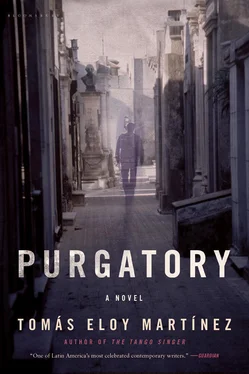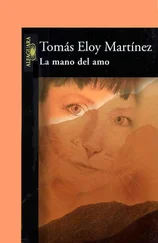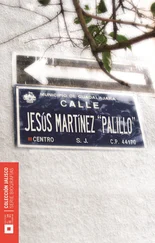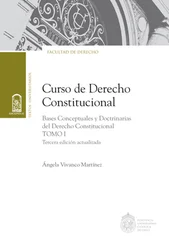She gets up at five o’clock so she can catch the 5.35 express from New Brunswick. She doesn’t turn the light on but slips away silently, hurriedly scribbling a note that she leaves on the pillow next to Simón. ‘I’ll be back in time for breakfast. Get some sleep. I love you.’ As she crosses the bridge over the Raritan and stares out at the ocean, she can just make out a purple glow appearing over the horizon and she imagines herself, like Mary Ellis, staring out through the window at nothing. She feels a slight twinge in a tooth she had filled a few weeks ago and remembers she needs to make another appointment to see her dentist. She’ll do it on Monday. Monday without fail.
Monday, she thinks again. Suddenly, the week is hurtling towards her with the terrible weight of reality. Every time she moves away from the present, time fills up with half-finished images that need to be completed and the responsibility fills her with dread. There are no cars, no trucks on the road, all the lights are out in the buildings and dawn creeping over the horizon is enough for the weight of time to torment her. Monday, she says once more. Monday. When she met Simón in Trudy Tuesday, the weekend seemed to stretch out endlessly, but now in the early hours of Saturday morning, every second seems fleeting. She wishes she could stop time, chain it to the wall in shackles. She has not even thought about whether her husband needs to be at work too. She doesn’t know what mapping company he works for, didn’t think to ask him for an address, a phone number. Only now does she realise how fragile her happiness is, how slender the thread by which her life hangs.
The station is deserted and the train, as always, arrives on time. A fine mist hangs over the trees. Although the leaves are turning yellow and orange as they do every autumn, squalls, sudden thaws, and brusque heatwaves presage further storms and hurricanes. Natural disasters hold a mirror up to this country which has sown so much hatred, so many wars, thinks Emilia. In the past six years, the culture of the United States has rolled back half a century to the shadows of Senator Joe McCarthy and Tricky Dicky Nixon. It’s not worth living here any more.
There are two elderly women and a young black man in her carriage. Barely have they leaned their heads against the window than they fall asleep. Emilia, however, is determined to face every second of the day with her eyes wide open, gazing at the sweetness of her life. As the trains rolls through Elizabeth, she watches the church steeples carving out a space in the greyish light of morning and although she has never taken the train at such an early hour she feels as if she has lived this scene before. It is as if the sleeping boy, the sleeping women have been here in this shadowy nook forever, as though everything that has happened in the sixty years she has lived has been a preparation for this inconsequential moment. Perhaps I am already dead, Emilia thinks, and what I am seeing is my hell or my purgatory. Every human being, she thinks, is condemned to linger forever in a sliver of time from which he can never escape. Her fragment of eternity, then, is here with three sleeping strangers on this suburban commuter train at 5.50 a.m.
The feeling fades as they draw into Newark station. She needs to hurry if she is to catch the number 70 bus out to Livingston Mall in Springfield. She has not made this fifteen-minute journey often. The sordid suburban scene depresses her, the sadness of people at dawn, the loneliness of the trees, the certainty that nothing will ever happen here because — she thinks — there are places so devoid of meaning that even the most insignificant events cannot blossom there. The last straw is that, when she finally arrives at the office, there is a hearse blocking the Altima. She rings the bell for Hammond but no one answers. It is a quarter to seven and the security guard is not answering. How inconsiderate. It’s Saturday and she could be lying in bed with her husband but for the unexpected call the night before. She arrives punctually as requested, rings the bell insistently. When she turns, she sees a giant of a man in a heavy coat appear from nowhere and come slowly across the parking lot to the limousine.
‘Morning,’ he says.
‘Good morning,’ she replies. ‘It’s about time.’
The giant starts up the hearse and drives off without a word. Emilia would have liked to ask him what he was doing here but didn’t dare. As a child, she shrank from undertakers and they still terrify her. All that matters is that her car is now free and she can take Route 22 back. The autumn sun rises quickly. She remembers leaving the bottle of Sauvignon Blanc in the freezer last night, the endives and the smoked salmon on the table. Dinner was ruined, but she doesn’t care. The happiness she feels is venal, simoniacal, yet it compensates for all her losses. In buying heaven she has sold hell. But she needs to come back to earth if she is not to go on losing. So delirious with love is she that she even forgot to ask her husband what he wanted for breakfast. She is sure that, like her, he will want black coffee and toast.
In her North 4th Avenue apartment, the silence is abysmal, unbroken even by the startling hiss of the lights as she turns them on.
‘Are you awake, amor ?’
Simón is not in the bedroom or in the kitchen. Perhaps when he woke he didn’t realise where he was and left. What if he’s forgotten her? She sometimes forgets things she did only yesterday while still remembering her childhood. She knows this happens to people as they grow older and Emilia is now on the slippery slope — very soon she’ll be eligible for a senior’s discount on the train and at the cinema — but Simón is barely thirty-three and his memory is unscathed.
A streak of light appears under the bathroom door. It comes from the window that overlooks the house next door. Timidly she calls out: ‘Are you in there, Simón?’ Her husband immediately replies: ‘Yeah, I’m here. I was wondering where you’d got to.’
He is wearing the pyjamas he wore on their trip to Tucumán. He must have kept them in his case all these years. Maybe he’d like to go with her to Menlo Park and buy some new clothes. She hums the opening bars of The Köln Concert as she makes coffee. She feels a rapturous joy flow through her body, the same electrical trill she felt the day they were married. When Simón opens the bathroom door, she rushes over to kiss him.
‘I left my car over at Hammond,’ she tells him, ‘the security guard was right. It’s a beautiful morning. Let’s go somewhere, amor , somewhere far from this world.’
Simón concentrates on his rye-bread toast and his coffee. He reaches over and strokes Emilia’s hand as it hovers in the air.
‘Have you heard of the eternal noon?’ he asks.
‘Once, a long time ago,’ says Emilia. ‘I’ve forgotten what it means.’
‘I learned about it in the old folks’ home.’
‘You were in an old folks’ home?’
‘Seven years. I worked there. I’ll tell you about it some other time.’
For Simón to talk about some other day, about a future with her, assuages her anxiety at the mention of the retirement home. Ever since they put her mother in one, the most expensive they could find, she has never been able to forget the experience of that spectral kingdom where no one spoke or dreamed or existed.
‘A retirement home,’ she echoes. ‘Seven years. I can’t believe you were a resident.’
‘I worked there, I told you. I’m too young to be a resident.’
‘And that’s where someone told you about the eternal noon.’
‘It was a writer; he used to pace up and down the courtyard with a slate. He’d published novels and books of short stories, he’d been famous in his day, at least that’s what he said. He showed me a drawing of a circumference touched by a tangent that extended off the edges of the slate. When the other patients were sunning themselves in the courtyard, the man with the slate would say: come with me now to the eternal noon. He explained that the circle was time, constantly revolving and the point of contact with the tangent represented the unmoving present. Our gaze tends to focus on that which moves, but if for a moment we were to stop and contemplate the present, noon would be eternal. The scenery changes and the seasons pass, the writer used to say, but the window that frames the scene is always the same.’
Читать дальше












